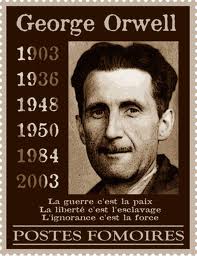Claiming to be dedicated to wildlife conservation is a constant refrain of farmer groups. In truth, not many farmers are interested in bio-diversity unless the result of it can be put to flight by a dog and shot. In 2010 the 19 species that rely on farmland for their survival were at their lowest populations ever recorded — half what they were in 1970 - while species like the corn bunting Miliaria calandra, grey partridge Perdix perdix, tree sparrow Passer montanus and turtle dove Streptopelia turtur showed a 90 percent decline. To many non-farmers it is a mystery why those who spend their working days amid the wonders of nature aren't more interested in wildlife conservation. But as George Orwell pointed out in 1944 when reviewing Sir William Beach Thomas' The Way of a Countryman: "Real rustics are not conscious of being picturesque, they do not construct bird sanctuaries, they are uninterested in any plant or animal that does not affect them directly... The fact is that those who really have to deal with nature have no cause to be in love with it."
Source: Private Eye, 24 February 2012 (attached)
Orwell said that political prose was formed "to make lies sound truthful and murder respectable, and to give an appearance of solidity to pure wind." Orwell believed that, because this writing was intended to hide the truth rather than express it, the language used was necessarily vague or meaningless. This unclear prose was a "contagion" which had spread even to those who had no intent to hide the truth, and it concealed a writer's thoughts from himself and others. Orwell advocates instead Plain English.
Source:
http://en.wikipedia.org/wiki/Politics_and_the_English_Language

- Log in to post comments
